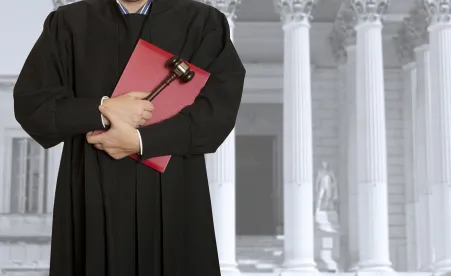Well, no one can say that he did not get his day in Court.
Plaintiff Ewing, a serial TCPA litigator who filed yet another case assigned to Judge Battaglia, narrowly escaped dismissal of all his claims, and was permitted leave to amend for a second time. See Stark v. Stall, Case No. 19-CV-00366-AJB-NLS, 2019 U.S. Dist. LEXIS 132814 (S.D. Cal. Aug. 7, 2019). But in the process, the Judge called attention to the Plaintiff’s unprofessional conduct in an earlier case, ruled that he failed to name a necessary party, and found that he inadequately plead the existence of an agency relationship between the defendant and the necessary party that he had failed to join in the lawsuit.
At the outset, the court dismissed the claim brought by co-plaintiff Stark, as the Complaint contained no allegations that any wrongful telephone calls were placed to that particular individual.
In 2015, Ewing had already been put on notice of the local rules of professionalism and their applicability to him, despite his status as a pro se litigator. Thus, the Court easily granted defendant’s motion to strike Plaintiff’s allegations to the effect that defendant had made a “derogatory remark” simply by pointing out that he was designated as a vexatious litigator.
The two most important pieces of the case for TCPAWorld are the Court’s rulings about Plaintiff’s failure to join a necessary defendant and his insufficient allegations to establish vicarious liability.
Plaintiff had failed to name as a defendant the entity (US Global) that allegedly made the calls to him. The court determined that this company is a necessary party that must be added in order for the court to afford complete relief among the parties. We often see situations where only a caller but not a seller, creditor, employer, franchisor, etc. are named, or vice versa, so it is encouraging to see courts strictly enforce Federal Rule 15 in the TCPA context.
The court further held that the relationship between Defendant and US Global was not such that Defendant could be held liable for violations of the TCPA that were committed by US Global. While Plaintiff made unsubstantiated allegations that an agency relationship existed, the Court treated these as merely legal conclusions and granted dismissal based on insufficient allegations of facts to establish a plausible claim that there is a common-law agency relationship between Defendant and US Global. Simply stated, the bare allegation that Defendant had the ability to control some aspects of the caller’s activity was insufficient to establish control for purposes of TCPA vicarious liability principles.
Plaintiff’s amended pleading is due on August 31—anticipating another round of motion practice, we will track any further developments in this case.




 />i
/>i

